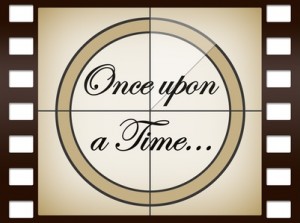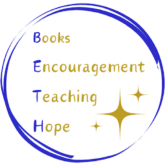 Before I get to the subject at hand, I want to say that I’m delighted and honored that Sandra Hershenson is interviewing me today on her blog. To read that interview, you may click here. (But please come back to read this post!)
Before I get to the subject at hand, I want to say that I’m delighted and honored that Sandra Hershenson is interviewing me today on her blog. To read that interview, you may click here. (But please come back to read this post!)
And now, to stage and screen adaptations —
Just over a week ago, I attended a panel discussion featuring novelists and screenwriters talking about their experiences of adaptation. It was good to get the perspectives both of novelists watching their work being altered to suit a new format, and of screenwriters doing their best to express the central core of a novel in a totally different medium.
Later this week, we will be immersed in one person’s process in bringing a children’s book to the stage. Today, we’re going to take an overview approach, getting a bit of a grounding in what is happening when a book is adapted.
One of the main complaints often voiced when a book is adapted either for stage or screen is that so much of the book was left out, or things were changed from the book. That’s a bit like looking at a bunch of luscious grapes, then seeing the glass of wine that they’ve become, and saying “but it’s not the same!”
A book has the luxury of narrative and description to build images and feelings in the reader’s imagination, to build the story into what seems like reality. A play or film must tell the story using visuals and dialogue, in a limited time frame. A novel might be four or five hundred pages — the standard for a screenplay is 120 double-spaced pages in Courier 12-point font, which translates to about 2 hours on the screen.
One might say that isn’t a fair comparison, comparing a published novel’s page length to a typed manuscript — so I took a look at one of my novels. It’s a relatively short one, as novels go, and it is 268 pages of double-spaced Times New Roman 12-point font. A smaller font, longer lines, more words. I couldn’t possibly put everything from that relatively short novel into a screenplay, and have it run much less than 3 hours, likely closer to 4. The story has to be very good to get filmgoers to happily sit still for 3 hours. Something must be cut.
The key, as Nino Ricci said in the panel I attended, is to be true to the vision, the heart of the story, while telling it in a different way, a way more suited to the limitations and freedoms of the cinema or stage. To do this, he and others on the panel pointed out, it may be necessary to focus on only some elements of the novel, to combine or excise characters, even to focus on a different part of the theme than a reading of the novel would.
Producing a play or a film is a much more collaborative process than producing a novel, involving the creative thoughts and vision of many different people to bring the project to fruition. That in itself has an affect on the way the story is told — and is why the same play script can seem vastly different depending on the director, actors and others involved in different productions.
This is necessarily only skimming the surface of the process of adaptation. If you are interested in reading further, I suggest starting by taking a look at Masterpiece Theatre’s learning resources on Adaptation: From Novel to Film, or the interview at What’s On Stage, Laura Turner on Adapting Novels for the Stage.
And — do come back to this blog in the next three days, as Jennifer Kirkeby takes us into her process of adapting the picture book Llama Llama Red Pajama into a stage musical!

So true. I have never been to a movie that I felt did justice to the book. As you say, that isn’t necessarily anyone’s fault. The mediums are different, and you can’t do the same thing on screen that you can do in a book. Gone With The Wind is pretty good 🙂 and I thought they did a good job with The TIme Traveler’s Wife. But maybe it’s more a question of how those specific texts lend themselves to adaptation – maybe the stories they tell are easier to produce on screen than many others. (And of course GWWW is pretty long!) Thanks for an interesting post, Beth!
Adaptation is a tricky thing. And I’m sure you’re right, that some stories transfer to a different medium more easily than others.
Thanks, Susanna!
P.S. Went to read you interview but it doesn’t seem to be up yet. I’ll try to remember to check back later!
It’s up now!
I was talking to Judy Schachner author of the Skippyjon Jones series and she was telling me how people wanted to make a movie out of the book but they wanted Skippy to be a human when he’s not in his closet! Ms. Schachner said it really wasn’t something she wanted to see happen to her story. I guess people see things differently. I wouldn’t want Skippyjon to be human.
Oh my. No way would I want Skippyjon to be human! There are definitely limits to what is and what isn’t okay in an adaptation!
Thanks for sharing that, Erik! (You meet the coolest people!)
It’s true that adapting novels to the screen or stage can be difficult. The only way to do so is to cut, nip and tuck certain things. For the longest time, lips spoke fervently of what it would be like, the epic task it would take for the Lord of the Rings saga to be adapted to film. Because so much was involved in the writing of the novels, most were fearful of taking them, slicing anything away and producing the movies. But it was done, on an epic scale, to the chagrin of many naysayers. And though it is true some things just couldn’t translate to the screen as well, the heart of the story shined through like a newly minted coin. With the introduction of new technologies came the chance to produce the screen version most thought impossible. And as one who adores LOTR, I was most pleased with the adaptation.
I think LOTR is an excellent example of how adaptations have changed with changing technologies, and have definitely benefited from being able to expand into things that just weren’t possible before. Thanks for adding that to the mix, Angela!
I know there are limitations when books are turned into movies. I read the Descendants last year and look forward to seeing how the movie compares. I’ve never read the book My Sister’s Keeper by Jodi Picoult, but was shocked (and I don’t know why it shocked me so) to learn the movie ended completely different than the book.
One wonders how Picoult felt about the changed ending. The authors on the panel talked about how it feels to see one’s creation changed from the way one intended it. I think it would be necessary to “grow into” that, in terms of being able to see the changes as necessary on one’s own book.
I would say for me it is very rare that a movie does a book justice, but I do occasionally come away feeling that the movie was a great compliment to the book(s). i can think of three examples off the tope of my head:
The James Bon stories by Ian Flemming.
A Town Like Alice by Nevil Shute
The Lord of the Rings by J R R Tolkien….
as good as the books, no, but I wasn’t disappointed.
Very good post, Beth, and that panel must have been great to attend.
It’s good that there are some that work, even if they’re not quite as good as the book. I find it very interesting that so many of the movies featured in the Oscars this year were adaptations of books, and kid’s books at that. There’s so much of worth in books, and perhaps filmmakers and playwrights mining the gold of the books will get people turned on to the books themselves.
Thanks, Joanna!
Very interesting post Beth. When I know a book is made into a movie, it’s just something that I accept because it is impossible to show all of the grapes. As long as the heart of the book is there and the movie is done well, I’m okay with it and like Joanna see it as a compliement to the book. Screenplay writers have a tough job!
But I do have a strong reaction when they completely change an ending that is powerful, like in Jodi Picoult’s “My Sister’s Keeper,” I am not happy. Jodi’s ending (looking from a writer’s viewpoint) was brilliant. You don’t expect it at all and it truly plays into the original theme of the movie. But, for the public the movie was a good movie and they may have felt it was too much for such a movie That’s the only time I ever I joined letter campaign on Jodi’s account to the produders.
Lots of great reactions Beth. Good topic.
Thanks Pat. You’re right, it’s just impossible to show all the grapes. I hope that at least in some cases, a taste of the wine of the movie might lead some to want to experience the whole bunch of grapes by reading the book.
Good for you for joining in a letter campaign!